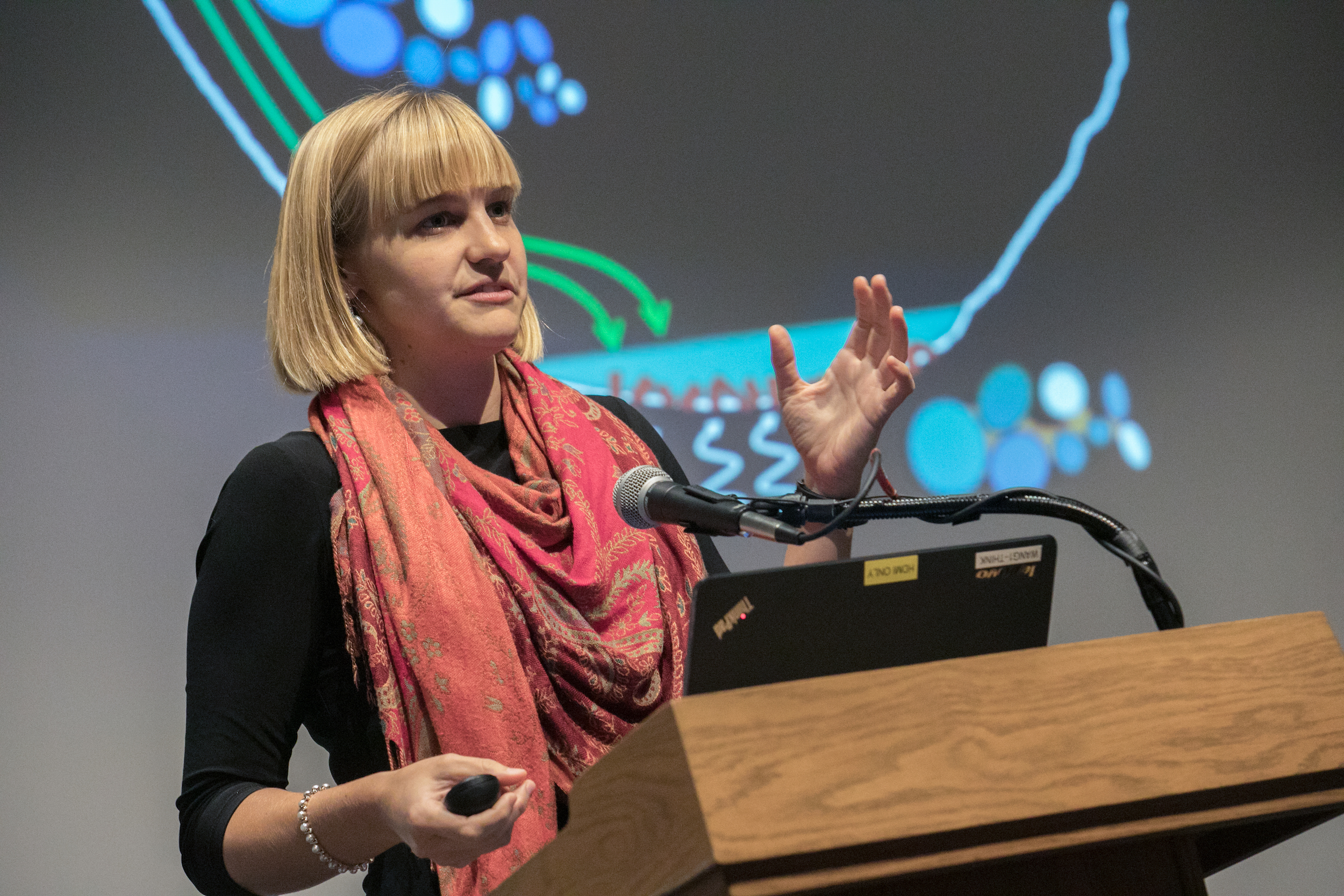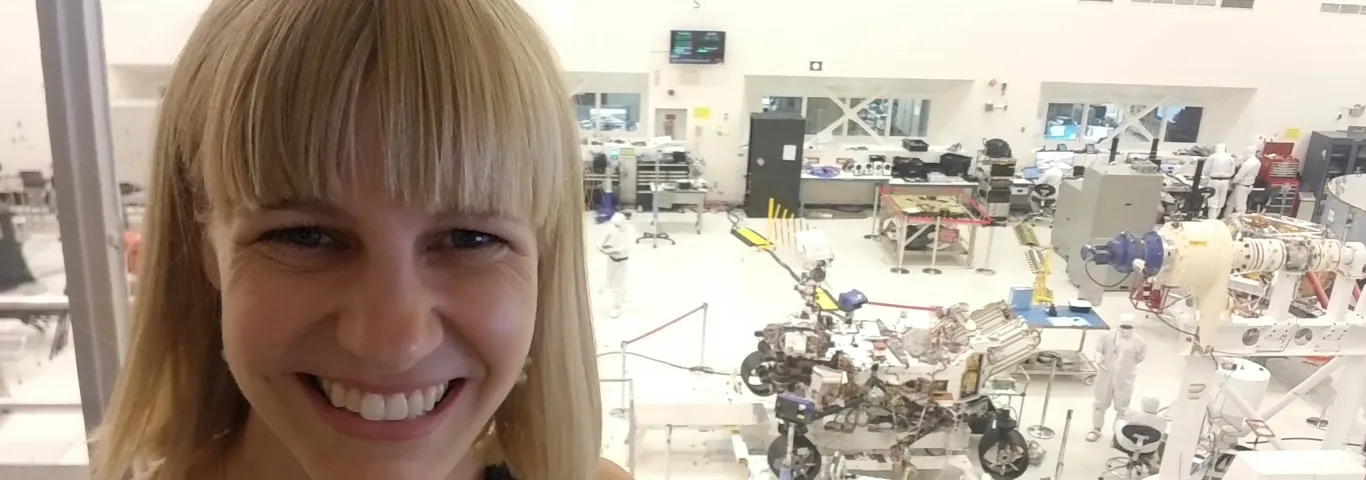Alumna Kirsten Siebach, AB 2011, reflects on how outreach opportunities at WashU led her to success as a "Martian geologist."
Kirsten Siebach, AB 2011, wasn’t sure what she wanted to do when she started college. Luckily, she had some help figuring that out.

“WashU was critical to me in every way for pursuing a career on Mars. Before I went to WashU, I didn’t even know about geology. Then, I got involved with Ray Arvidson’s Pathfinder program.” Through her work with Arvidson, Siebach had the opportunity to participate in the Spirit rover mission and then the Phoenix lander mission—extraordinary experiences for any undergraduate.
Siebach is now an assistant professor of Earth, environmental, and planetary sciences at Rice University in Houston, Texas, and a self-described “Martian geologist.”
Though Siebach’s research is focused on Mars, her interest in the red planet arises from concerns closer to home. “I’m excited to understand the history of water on Mars. If Mars could have been Earth-like, it can teach us about the early times on our own planet,” Siebach said. “Ultimately, I’m trying to learn what the influence of life really has been on Earth.” Her contagious excitement for this topic, which she now gets to share with her students, was born at WashU.
For Siebach, working on the missions was only the first part of what made her experiences at WashU transformative. As an undergraduate researcher, she was also able to share her work with students from St. Louis-area schools.
“Those outreach opportunities and the chance to share what we’re doing on Mars has been a big part of what makes this job so exciting for me,” said Siebach. “It’s been a critical part of my career, and it’s part of why I ended up in my current faculty position. I gave lots of talks to different scientific communities, different geological societies, really any group that would listen, and that’s how Rice heard about me.”
As a professor herself, Siebach is following Arvidson’s example. “My experiences with outreach helped me develop my communications skills so that I am more effectively able to teach and work with all varieties of researchers. Bridging different fields of science and different levels of expertise is essential to my job, whether I’m working with students or the media or peers in a different discipline,” Siebach said. “Now one thing I focus on is giving my students the same opportunities I had. I keep an eye out for different outreach experiences and try to pass those on to my students, just like Ray did for me.”




